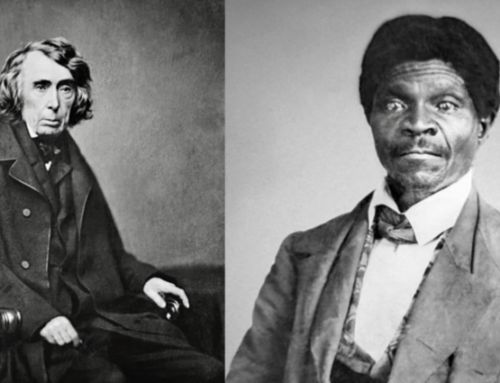Economics deals with statements of “is,” not of “ought.” It can tell you the consequences of particular public policies, but it cannot itself demonstrate the rightness or wrongness of such policies…

Some debates on economic matters seem destined to recur in the public square. The minimum wage is one. Rent control is another. With several recent announcements and executive orders from the Trump Administration, international trade is another that has once again captured widespread public attention.
The issue is the desirability of “free” trade. Proponents hold the removal of many barriers to the international mobility of labor and capital are beneficial to the public. Opponents hold these barriers are essential protectors of domestic workers’ livelihood. As is frequently the case, both sides make recourse to questionable arguments.
The errors of free trade’s opponents are easier to identify. Advocates of protectionism claim that trade barriers, such as tariffs, protect American jobs. At best, this is unclear. Focusing on jobs created or protected by tariffs only scratches the surface of the economic forces at work. As the nineteenth-century economic journalist Frédéric Bastiat noted, to evaluate policy, we must not stop our analysis at the effects that are “seen,” but reason through to the “unseen” as well. Suppose a tariff is placed on foreign automobiles. This will make foreign automobiles more expensive relative to domestic ones. Consumers will purchase relatively more domestic automobiles as a result. This will contribute to the demand for domestic automobiles, and indirectly the demand for the labor that makes automobiles. The seen effect is increased employment in industries related to domestic automobile production. What is missed, however, is the unseen benefit to American consumers of purchasing cheaper foreign automobiles had the tariff been absent. Consumers will save money, since the foreign automobiles cost less. Consumers will thus have more left over to spend on other things. This will contribute to demand for other goods and services in the domestic economy, and indirectly the demand for the labor that is necessary to supply these goods and services. Once we take account of the unseen but no less real effects, the net change on employment is ambiguous.
Similar to the one just discussed, the vast majority of protectionist arguments are flawed at a basic level. But economists go too far when they assert—as they unfortunately do too often—that economics shows that free trade is “good.” Economics, as a science, shows no such thing. First of all, economics deals with statements of “is,” not of “ought.” It can tell you the consequences of particular public policies, but it cannot itself demonstrate the rightness or wrongness of such policies. Second, economists often contradict the basic tenets of their theories when they assert the efficiency of free trade as a basis for its desirability. One of the foundational propositions of economics is that value is subjective. This means what matters is not goods and services in themselves, but what people think and feel about them. In order to remain scientific, economics cannot privilege any benefits or costs above others. To arbitrarily exclude some benefits or costs from efficiency considerations would be to smuggle a value judgment in through the back door. How, then, do you compare the benefits to American consumers of cheaper goods made available by free trade, against the costs to individuals who do become unemployed, such as loss of self-esteem, the erosion of local social capital, and resource costs associated with switching jobs? Economists usually only pay attention to the last of these, because they are material: switching jobs consumes real resources that could be used to produce other things. But there is no reason to privilege only material costs and benefits; indeed, if economists believe their own propositions, there is no such thing as a “material” cost or benefit. To put it another way, so-called psychic costs and benefits, such as despair over losing a job, are just as real. We quickly confront the troubling fact that value scales cannot be compared across individuals; unqualified assertions of the objective efficiency of free trade (and, in fact, any particular policy stance) fail.
Sometimes economists fall back on the argument that free trade increases efficiency in the sense that it maximizes the dollar value of society’s scarce resources. This is true, but irrelevant. Remember, the subjectivity of benefits and costs means that, by the standards of economists’ own theories, the psychic disutility of someone who loses their job, expressed in dollars, cannot be directly compared to the psychic utility of someone who can now consume goods and services more cheaply. Efficiency can be a useful concept when it is regarded as an unintended result of market exchange, but as a criterion for policy that exists “out there” in the world aside from these exchanges, it can do more harm than good.
Too many proponents for free trade are thus making normative statements under the pretense of making purely positive statements. To argue for free trade on the basis of any conception of efficiency is an ethical argument. Economic theory by itself cannot take you there. Value judgments are inexorably wrapped up in advocacy.
So which side is “right?” I am an economist, so it probably will not surprise you to learn that, despite their often-unexamined equivocation between “is” and “ought,” I side with the economists. I am a free trader. My reasons have nothing to do with economic efficiency. Instead, I rely on a simple maxim—a heuristic, if you will—for what I believe is sound public policy: It is wrong and harmful to prevent benefits accruing to the general public due to fears about the costs borne by a relatively small subset of the public. Although the benefits and costs of free trade cannot be quantified and compared across individuals, it can be said at a general level that the benefits are widely dispersed, while the costs are narrow and concentrated. Almost all Americans are consumers of automobiles; relatively few are producers of automobiles. Even if done with the right intentions, and with full consciousness of the consequences, it is an abuse of the public trust to privilege small interest groups at the larger public’s expense.
There are a host of other reasons to oppose protectionism. Peace between nations is one. A quote attributed to Bastiat goes, “When goods don’t cross borders, soldiers will.” Civic virtue is another. Preventing trade closes off a moral space in which individuals can develop their talents and exercise the ethical habits that make them good citizens, and good human beings more generally. The dignity of man is still another. Protectionism involves the initiation of violence against otherwise peaceful persons, reducing them to cogs in a nationalist machine. Each one of these explanations draws on a rich and normatively sophisticated portion of humanity’s, and the West’s in particular, “great conversation.” None has anything to do with efficiency, except in the trivial sense.
Public debate about free trade will probably never be settled. Economists perform a valuable role when, each time the issue arises, they educate the public about the actual consequences of the public’s naïve policy preferences. This is a proper function of social scientists in their capacity as teachers and citizens. But economists also impugn the integrity of their discipline when they make uncritical statements about efficiency and its desirability. Such claims are not only rhetorically unpersuasive; they also lower the esteem of economic science in the eyes of educated students of the humanities, as well as the public at large. Economics can only protect the public from itself if economists recognize the limits of their discipline.
The Imaginative Conservative applies the principle of appreciation to the discussion of culture and politics—we approach dialogue with magnanimity rather than with mere civility. Will you help us remain a refreshing oasis in the increasingly contentious arena of modern discourse? Please consider donating now.
The featured image is by torange.biz and is licensed under Creative Commons 4.0.







This is a very good article and reflects most of my positions on free trade and its corresponding counterpart, protectionism. On the benefits of free trade, I have no disagreement. The benefits to the consumer are clearly understood.
On the detriments of free trade, I might quibble. The notion of psychic costs is just too amorphous and frankly meaningless. Everyday life brings psychic costs all the time and even if the nation’s economy were a closed system, job loss and some sort of upheaval would be and is a fact of life. A sound economy should have a level of creative destruction which undoubtedly will effect workers.
However, that doesn’t mean there are no costs to the self-inflicted upheaval that free trade may cause. Unemployment, retraining, loss of contributions to the economy and social services, increased social services for people who cannot be re-employed, loss of capital in buildings and factories, loss if support to the micro economies around places that have to restructure, relocation of people and small businesses around major facilities that are shut down, and so on. The detriment to society does not have to be “psychic” and it is quantifiable to some degree.
So when does protectionism make sense? Clearly when tariffs are sky high, reduction through free trade policies make sense for the consumer. When all tariffs are eliminated there will be (and has been) an indirect cost to society at large. Where that cross over point is constitutes more sound economic policy. It seems to me – and up front, as I’ve said before on TIC, that I’m not an economist—that one should aim for a low enough tariff that allows the consumer to benefit from free trade, but enough of a protectionist tax to curtail the upheaval. Where that efficiency curve falls, is up to you economists. But there is a cross over point, and that gets minimized if not forgotten in the free trade arguments.
Also it seems to me that optimum efficiency from free trade is only a momentary value. How would we know what economic structure will be best for the nation in the not too distant future? If we put all our eggs into a white collar economy, could that imbalance pose a risk from some unknown event that causes the economy to collapse? For instance, did the banking crises of 2008 effect banking central economies more so than manufacturing economies? I don’t know the answer to that because banking effects manufacturing. But you see the point I’m making? It seems to me that economists should play with economic models and assess disturbances in various forms. Intuitively I would think a balanced economy would do best in the long run. Of course, intuition is not a good answer.
One place you have caused me to rethink the values judgment argument is in, let me call it a fulfillment argument. If we create an economic structure of only white collar workers, then those people who cannot adapt to be a white collar worker, and this goes for future generations as well as the generation most effected by free trade, have no means of self-realization. There are people who are only fulfilled through a physical laborer’s role in life. Those types of decent paying jobs are less and less, and it’s not because manufacturing doesn’t exist. It exists in other countries. A more balanced economy may—and I say “may” because I don’t have insight to the unintended consequences—create a more satisfied nation. This is probably a value that cannot be captured monetarily.
Still, by and large, lower tariffs are a good thing.
Short comment, as best as can be keep the government out of trade. Absent particular emergencies the investments, plans, and managements of investors & consumers are in fact the impetus, the crux of any healthy national economy.
Really good article. It hits many reasons why the outcome of an economic action are not a priori predictable. Let us extend with technological innovation that changes the equations. Also the costs of transportation. There is the gains in infrastructure, intellectual capital you get from doing stuff. Then there’s also the opportunity costs of being invested in outdated items nobody wants. Then there’s the increase in markets by overall affluence.
Oh, but you’re stuck on a previous outdated Adam Smith model that has the granfallun of scarcity. You can’t get to accuracy if you’re model is misspecified. You need a logistics one.
So, you go to a posteriori model. China’s rise helped us. Free trade iz da bombz.
The end. (drops keyboard).